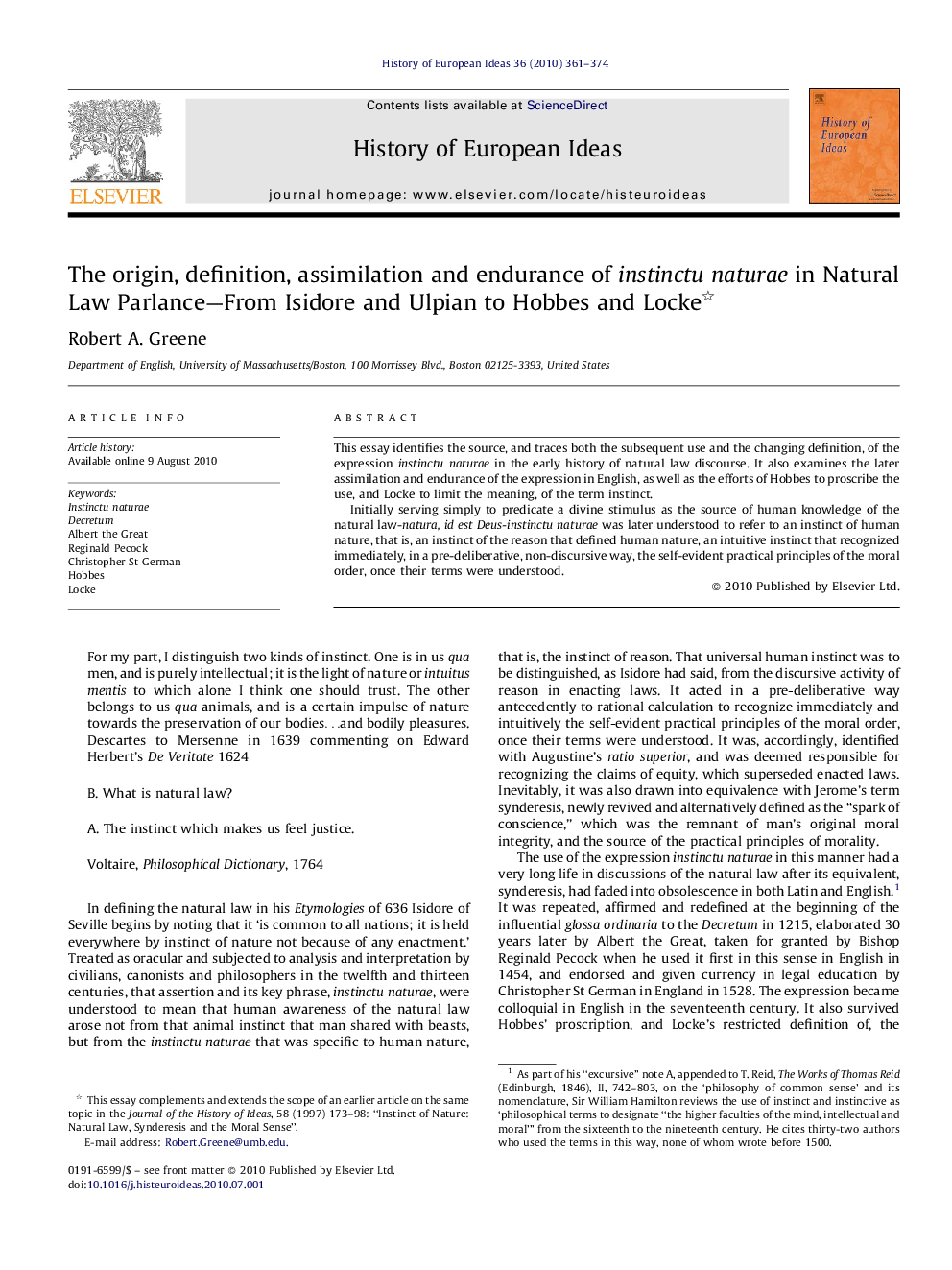| کد مقاله | کد نشریه | سال انتشار | مقاله انگلیسی | نسخه تمام متن |
|---|---|---|---|---|
| 1159000 | 1490064 | 2010 | 14 صفحه PDF | دانلود رایگان |

This essay identifies the source, and traces both the subsequent use and the changing definition, of the expression instinctu naturae in the early history of natural law discourse. It also examines the later assimilation and endurance of the expression in English, as well as the efforts of Hobbes to proscribe the use, and Locke to limit the meaning, of the term instinct.Initially serving simply to predicate a divine stimulus as the source of human knowledge of the natural law-natura, id est Deus-instinctu naturae was later understood to refer to an instinct of human nature, that is, an instinct of the reason that defined human nature, an intuitive instinct that recognized immediately, in a pre-deliberative, non-discursive way, the self-evident practical principles of the moral order, once their terms were understood.
Journal: History of European Ideas - Volume 36, Issue 4, December 2010, Pages 361–374